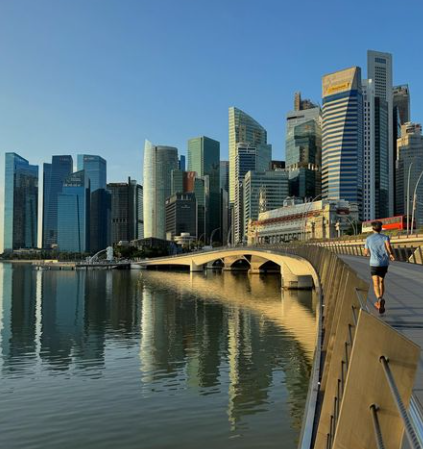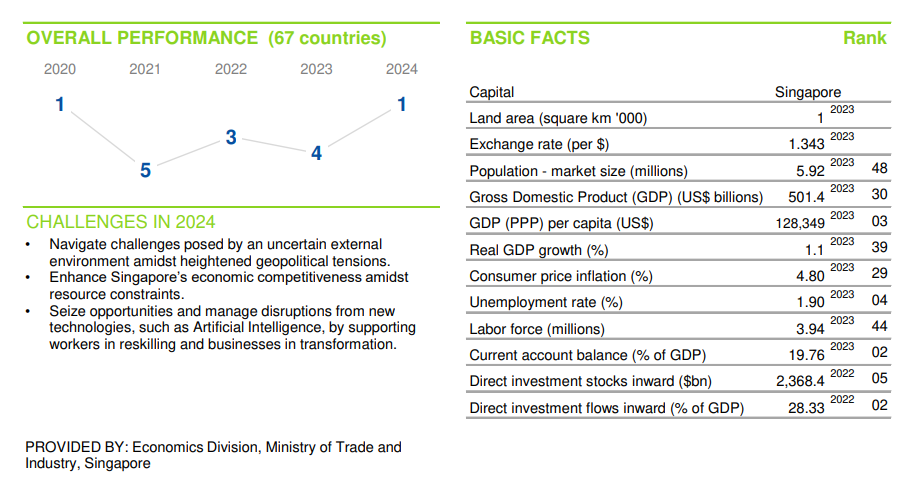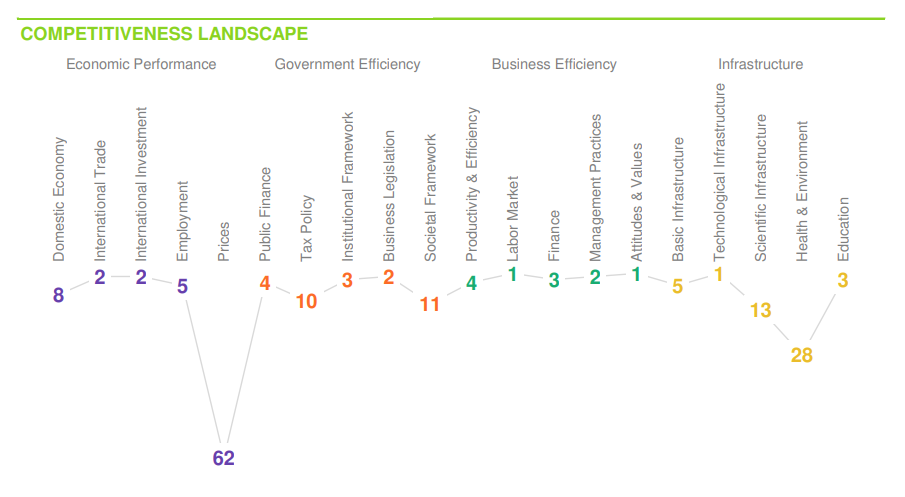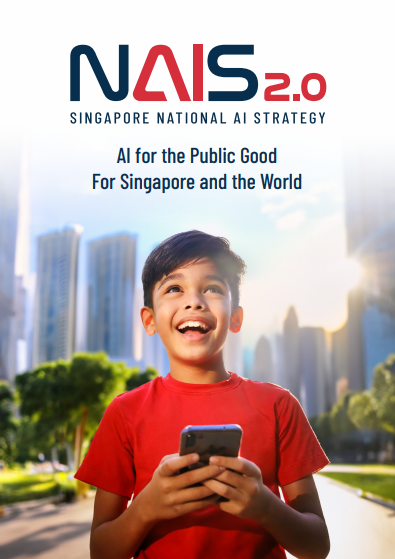
Singapore has moved up three places to take the No. 1 spot in the World Competitiveness Ranking (WCR) 2024, published by the International Institute for Management Development (IMD). The island nation, one of the top business hubs in Asia, has reclaimed the top spot after four years in the post-pandemic world.
Switzerland, Denmark, Ireland, and Hong Kong round off the Top 5 in the 2024 ranking.
Singapore was at the top of the IMD competitiveness ranking in 2020, the year when the pandemic struck. It dropped to No. 5 in 2021; rose to No. 3 in 2022; again slipped a place to No. 4 in 2023; and has regained the No. 1 spot in 2024.
The IMD has under it the World Competitiveness Center (WCC), which is “dedicated to the advancement of knowledge on world competitiveness”. This centre puts together the annual ranking, providing many of the key metrics.
Summarising the findings of WCR 2024, an IMD blog posted this month said: “Singapore is the most competitive economy out of 67 across the world’s eight major regions.”
Explaining the basis of the ranking, the blog said: “The WCR measures the quality of institutions, human development, quality of life, and quality of government. A quality government, according to the WCC’s definition, provides an environment characterized by efficient infrastructures, institutions, and policies that encourage sustainable value creation by enterprises.”

WCC Director Arturo Bris said that the annual World Competitiveness Ranking “serves as a benchmark for these countries to measure their progress and identify areas for improvement, offering a clear path towards their economic development but also supporting global goals such as the [UN] SDGs”.
About Singapore, the IMD blog said: “Singapore’s performance marks a return to form; last occupying first place in 2020, it then fell to fifth, third, and finally fourth in the following years, while Denmark and Switzerland performed a tussle for power over the top spot.”

It said that the data for the 2024 ranking show “a particularly robust performance for the island nation across the areas of government efficiency (the extent to which government policies are conducive to competitiveness) and business efficiency (how well enterprises are performing in an innovative, profitable, and responsible manner).”
The other two areas of assessment are economic performance (a macro-economic evaluation of the domestic economy) and infrastructure (the degree to which basic, technological, scientific, and human resources meet the needs of business).
Bris said, “The best-performing economies balance productivity and prosperity, meaning they can generate elevated levels of income and quality of life for their citizens while preserving the environment and social cohesion.”

AI gives Singapore an edge
Investment in Artificial Intelligence (AI) and a clear roadmap for building a ‘Smart Nation’ gives Singapore the edge in global competitiveness. AI in Singapore is a tool for not just doing business better, but also for living better.
Its National AI Strategy (NAIS) 2.0 was launched in 2023, and the NAIS website said: “As a Smart Nation, our commitment extends beyond merely embracing technology; we aspire to be at the forefront, setting the pace, and driving global innovation and conversations in tech, including AI.
“In 2019, we unveiled our first National AI Strategy, outlining plans to deepen the use of AI to transform our economy. Our early investment in AI led to the establishment of about 150 teams working on research and development, and 900 startups exploring new ideas with AI. Since then, we’ve witnessed significant breakthroughs in AI, resulting in the development of new products, enhanced capabilities, and transformative interactions.”

In the context of the World Competitiveness Ranking for this year, WCC Senior Economist José Caballero said, “At the micro level, the recent surge in AI-based technologies could boost efficiency and productivity significantly.”
Outlining safeguards, he said, “One of the key challenges for companies is how to implement AI systems that improve efficiency without disrupting business activities. Another is ensuring a chosen AI system’s accuracy; inaccurate systems lead to inefficiencies and reduced productivity.
“Furthermore, there is a cost-related challenge, given that initial investments in AI technology can be substantial while the ongoing costs of maintenance and upgrades to the systems can be significant.”
NAIS 2.0 in Singapore has two main goals:
● Excellence: “Singapore will selectively develop peaks of excellence in AI, to advance the field and maximise value creation. We intend to direct AI towards addressing the needs and challenges of our time, such as in areas of global importance like population health and climate change.”
● Empowerment: “Singapore will raise up individuals, businesses, and communities to use AI with confidence, discernment, and trust. We intend for AI to be the great equaliser, which equips our people and businesses with the capabilities and resources to thrive in an AI-enabled future.”
This goal and strategy of equitably distributing the benefits of AI among its entire population make Singapore one of the global leaders in the field, cementing its high position among the world’s most competitive economies.


